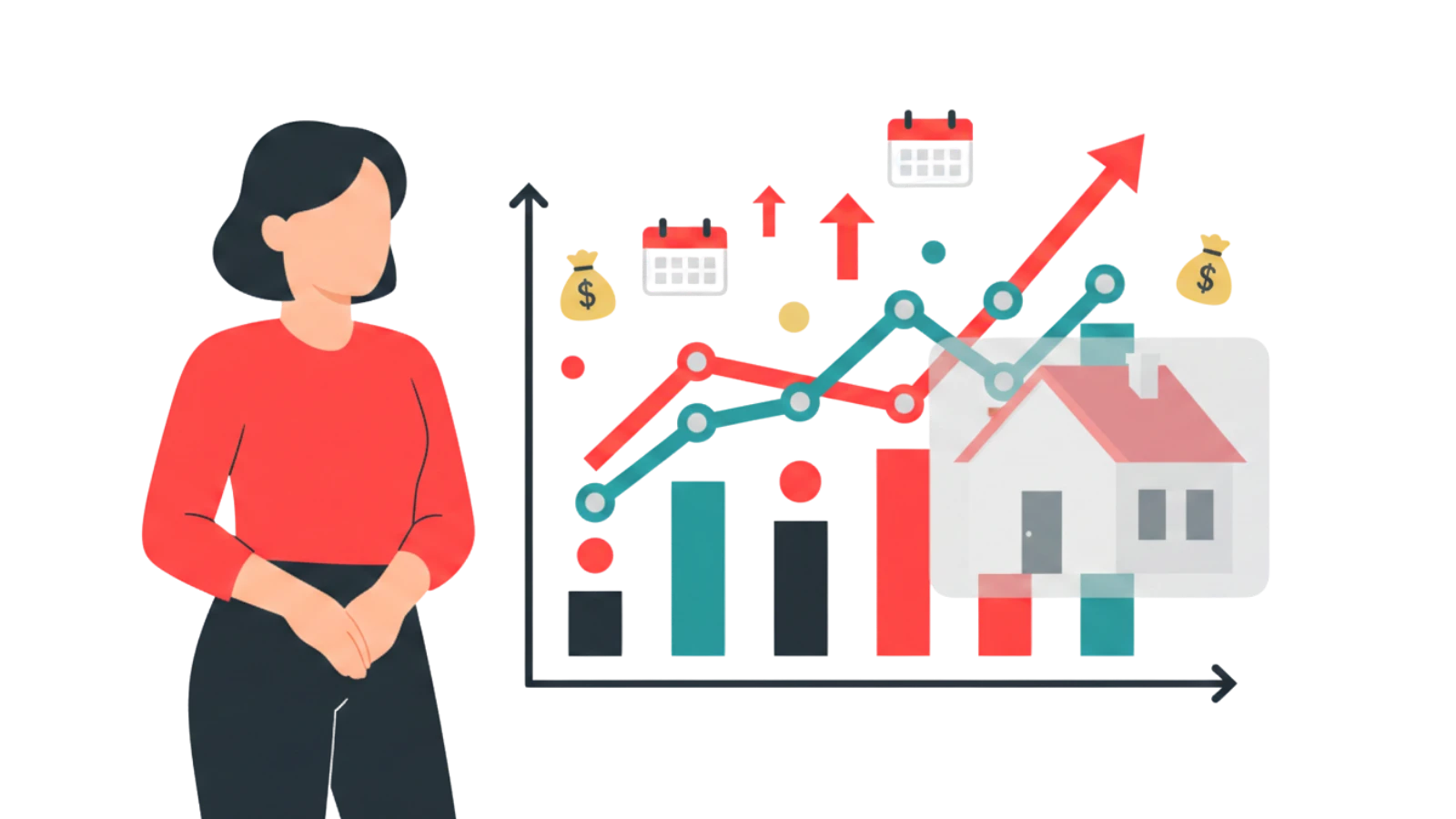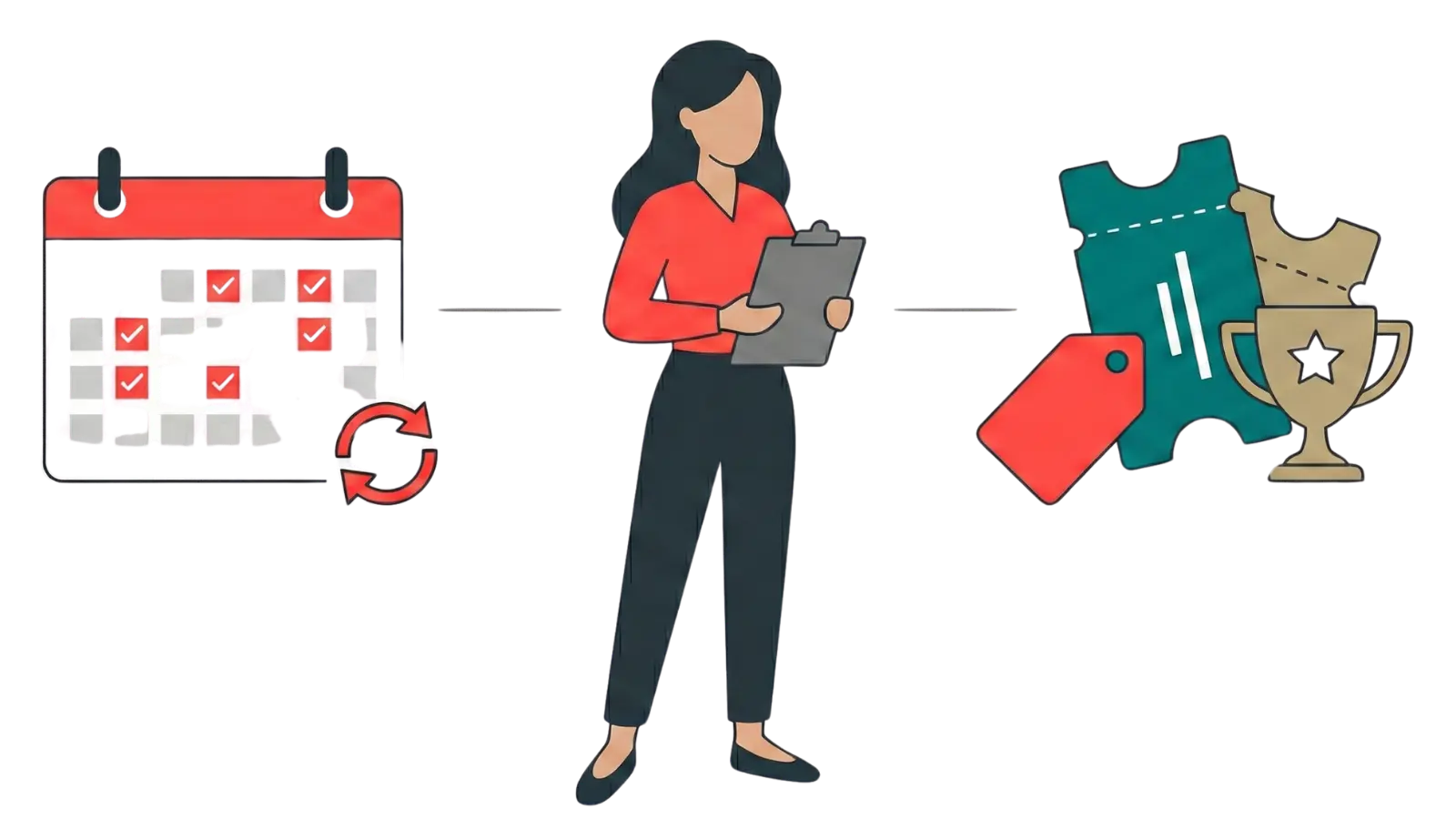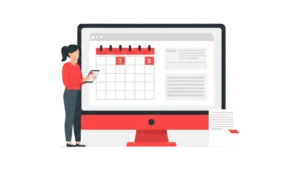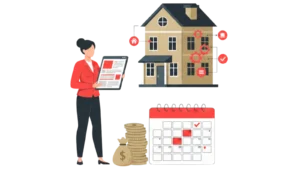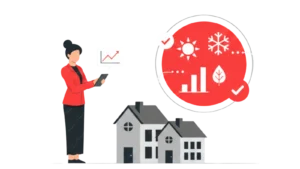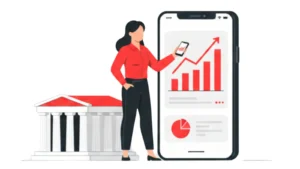Table of Contents
Updated : Dec 8, 2025
You might not want to keep your calendar open all the time: there might be emergency maintenance required or an event might require your entire property. All of these might lead to closing the property for more bookings – which is where blackout dates come in.
Understanding and strategically implementing blackout dates can significantly impact your revenue optimization strategy. This article will discuss this further.
What are Blackout Dates?
Blackout dates Definition: It is also known as blockout dates in some regions, are specific calendar dates when a property is deliberately made unavailable for booking either for personal use or for maintenance.
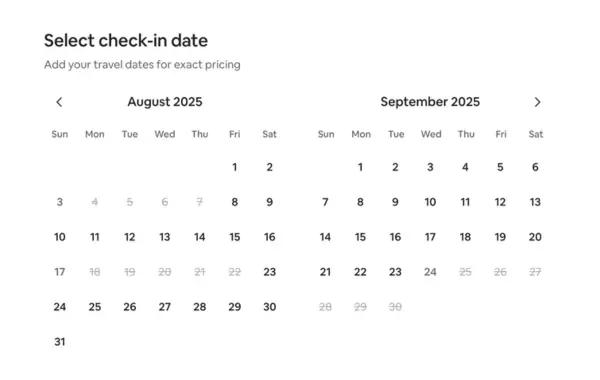
Unlike standard availability management, blackout dates provides you a strategic decision making strategy to remove certain dates from your calendar regardless of the property’s occupancy condition.
Blackout dates are used to serve specific purposes:
- Preventing bookings in periods when you can not or prefer not to accommodate guests
- Managing high-demand periods to implement specialized pricing strategies
- Blocking dates for maintenance, renovations, or personal use
While the term originated in the traditional hotel industry and loyalty program context (where certain high-demand dates are excluded from point redemption), Blackout dates are also important for you as a host, and understanding the blackout date meaning can help you manage your calendar more strategically.
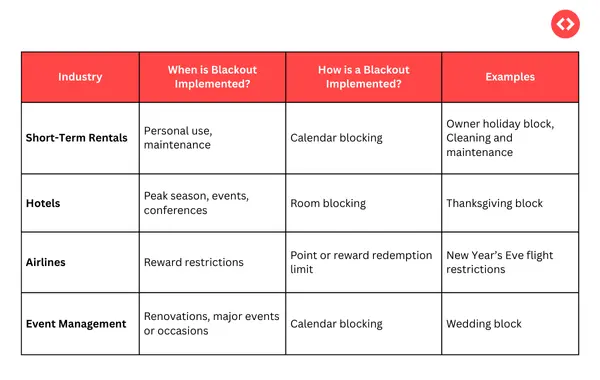
How to Strategically Use Blackout Dates?
There are important uses for blackout dates that go beyond simply removing such days from your calendar. These dates help you obtain the most income and occupancy possible out of your property.
1. Plan your property upkeep and maintenance.
The only way to ensure that your guests have a positive experience is to maintain your home consistently. Blackout dates lets you plan regular deep cleaning, preventative maintenance, and essential upgrades without disrupting bookings.
For example, blocking few days each quarter for property inspections and repairs can prevent costly last-minute emergencies and negative guest reviews while extending the lifespan of your property.
2. Create Premium Pricing Opportunities
Strategic blackout dates can help you capitalize on high-demand periods by creating artificial scarcity of available dates. When you temporarily blocking key dates around major events and releasing them later, you can command a premium rates far above your standard pricing.
When you combine the blackout dates strategy with data-driven market insights, you will be able to boost your average daily rate (ADR) by 30-60% during peak seasons.
3. Maintain Work-Life Balance
A short-term rental hosts life is not easy. You are always juggling multiple things and burnout is a real risk.
With blackout dates, you will get the flexibility to schedule time for vacations, family, or just rest, ensuring that both you and your business are in good hands for the long term.
4. Control Guest Turnover Frequency
Frequent guest turnover will drive up your cleaning costs and add more operational strain. When you use blackout dates strategically you can encourage longer stays, reduce turnover while also being able to maintain high occupancy rates.
If you do not have external help, this approach will be extremely helpful for you. It will minimize logistical burden and streamlines operational costs.
Implementing Blackout Dates: Strategic Considerations
1. Understand Your Market
Every market has its unique demand patterns driven by local events and seasons. You should conduct a comprehensive demand analysis of your market.
With PriceLabs, our Review Prices Dashboard allows you to quickly analyze the events that will happen in your neighborhood and understand their impact on your property as well.

For example, if you operate in a market with a major annual festival, you might consider:
- Blocking dates 2-3 weeks in advance to create scarcity
- Gradually releasing select dates with premium pricing
- Maintaining blocks on dates that historically see high cancellation rates
To determine seasonality, you need to evaluate both past performance data and future market trends:
- Historical data: identify patterns in extended stays. Were there consistent 30+ day bookings in previous years, or were longer stays only seasonal?
- Future data: Use tools like PriceLabs’ Market Dashboard to track demand shifts, competitor pricing, and length-of-stay trends in your area.

By combining historical insights with live data, you’ll stay ahead of market changes and optimize revenue without guesswork:
- Use PriceLabs’ Market Dashboard & Neighborhood Data to track competitor pricing and demand shifts.
- Analyze past performance to set a strong seasonal pricing strategy.
- Adjust dynamically using real-time Portfolio Analytics to track ADR, RevPAR, and occupancy trends.
You should combine your property’s past performance data in Review Prices and PriceLabs Portfolio Analytics with PriceLabs Market Dashboard and Neighborhood Data to gain valuable insights into the market and property pricing.
PriceLabs Portfolio Analytics will provide a real-time reporting system that tracks important financial metrics for your property, giving you quick insights into its performance.
This focused approach provides much more relevant demand insights than broad market averages.
Stay Ahead of Market Changes and Optimize Revenue By Understanding Historical Insights
Use PriceLabs Market Dashboard and Neighborhood Data to track competitor pricing and demand shifts and analyze past performance to set a strong pricing strategy for your property.
Create your Market Dashboard Now2. Competitive Position Assessment
Your property’s position in your market impacts an optimal blackout date strategies. Any property that has unique features, is in a prime location, or has exceptional reviews can always implement or try to implement an aggressive blackout and premium pricing strategies than those competing primarily on price.
With PriceLabs Market Dashboard, you can create specific comp sets that reflect properties similar to yours or ones you’re considering investing in. This allows for more targeted analysis of direct competitors rather than the entire market.

For example, you can create a comp set of properties with:
- Similar bedroom count
- Comparable amenities (like pet-friendly properties)
- Minimum quality standards (4+ stars with at least 10 reviews)
- Minimum occupancy thresholds (180+ booked nights annually)
To implement your blackout date strategy, you should analyze your competitors with metrics such as:
- Average review scores compared to similar listings
- Booking lead time relative to market averages
- Price positioning within your competitive set
- Unique amenities or features that differentiate your property
3. Platform-Specific Implications
Different booking platforms treat blackout dates with varying algorithms and visibility implications.
Understanding these nuances is crucial for maintaining optimal search positioning while implementing blackout strategies:
- Airbnb: Excessive calendar blocking can negatively impact search ranking through their availability-driven algorithm. Consider using minimum stay requirements instead of complete blocks when appropriate.
- Vrbo: These platforms tend to prioritize properties with consistent availability patterns, making sporadic blackout dates less impactful than on Airbnb.
- Booking.com: The platform’s visibility algorithm heavily weights availability, making strategic partial blocking (rather than complete calendar closures) more advantageous.
- Direct Booking Channels: Your own website or direct booking channels provide the most flexibility for implementing sophisticated blackout strategies without algorithmic penalties.
4. Pulsing Availability During Peak Demand
Rather than blocking off entire high-demand periods, consider “pulsing” your availability by alternating between blackout dates and available dates with premium pricing. This approach balances revenue optimization with maintaining sufficient booking volume to avoid algorithmic penalties on major platforms.
For example, during a two-week festival period, you might block Monday-Wednesday while keeping Thursday-Sunday available at premium rates, creating artificial scarcity while maintaining some booking opportunities.
5. Incremental Release Strategy
For major events with predictable demand curves, implementing an incremental release strategy can maximize revenue potential:
- Initially block all dates during the high-demand period
- Release select dates 3-6 months in advance at premium rates (typically 40-60% above standard)
- Monitor booking pace and competitor pricing
- Strategically release additional dates as the event approaches, adjusting pricing based on remaining inventory in the market
This approach allows you to capture both early planners willing to pay premium rates and last-minute bookers facing limited market inventory.

6. Buffer Day Optimization
While many hosts implement buffer days between bookings for operational purposes, these can be strategically manipulated during different demand periods:
- During low demand: Eliminate buffer days to maximize potential booking opportunities
- During moderate demand: Implement single buffer days for operational efficiency
- During peak demand: Extend buffer requirements to encourage longer minimum stays and reduce turnover costs while maintaining premium pricing
This flexible approach ensures buffer days enhance rather than restrict your revenue potential.
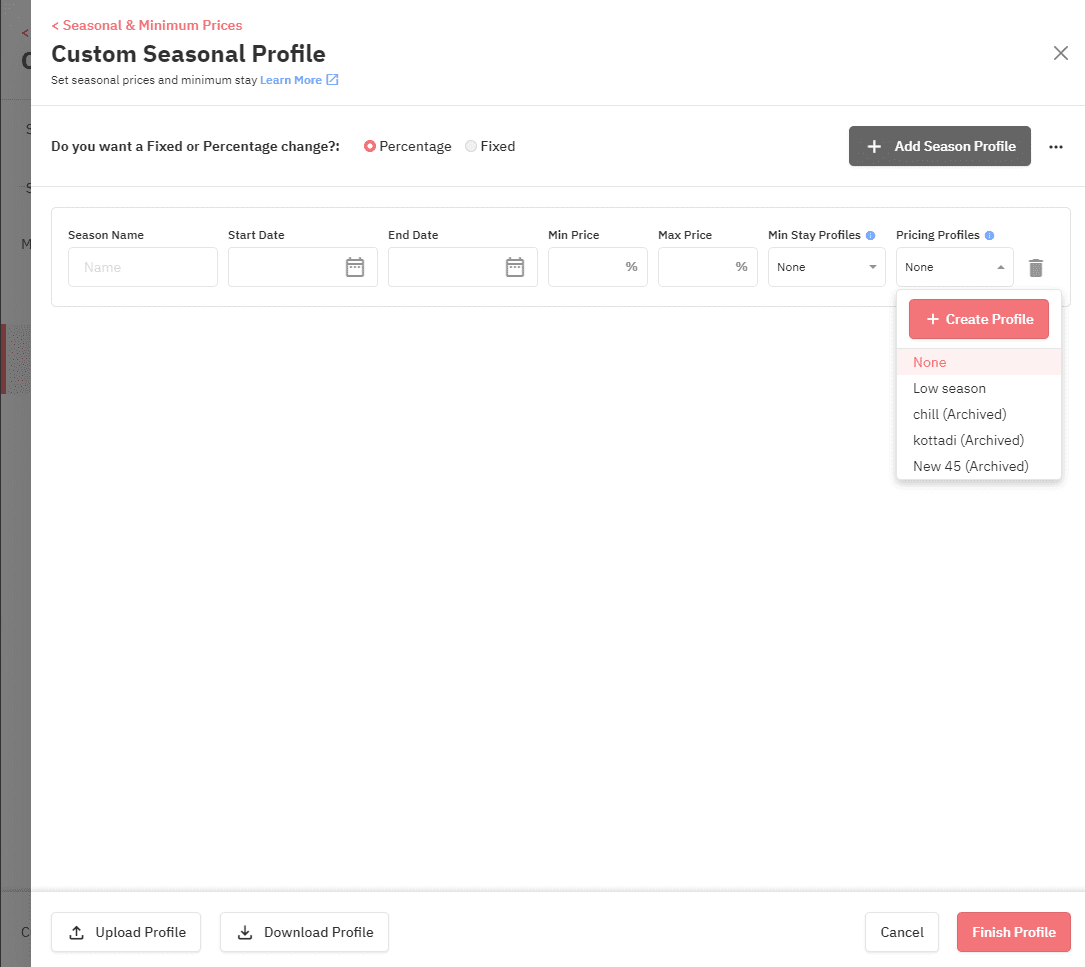
Common Blackout Date Implementation Mistakes
Even experienced hosts sometimes fall into these common blackout date strategy pitfalls:
- Calendar not synced across platforms: If you have listed your property across booking channels, you might have a blocked date on one platform and open in another which would lead to double bookings or missed opportunities. You should implement a centralized channel manager or property management system that synchronizes your calendar across platforms.
- Reactive date blocking: You might block dates only when you have personal plans or maintenance requests which would mean that you miss revenue optimization potential of strategic blocking based on demand forecasting and market analysis.
- Excessive blocking: If you have implemented a revenue management tool like PriceLabs, excessive blocking might not allow the platform to learn your property’s booking patterns which would be harmful for you in the long-run.
- Failure to communicate blockout: If you receive a lot of direct bookings or have regular guests, you should communicate it with your guests beforehand. If you don’t, it might lead to uncomfortable situations and also lead to missed opportunities.
Balancing Blackout Dates with Occupancy Targets
The ultimate goal of any revenue management strategy is maximizing total revenue, not just average daily rate. Finding the optimal balance between blackout dates and overall occupancy requires ongoing analysis and adjustment.
You can aim for a blackout date strategy that:
- Blocks no more than 10-15% of calendar days for strategic revenue purposes
- Maintains a minimum of 45-60% occupancy across available dates
- Achieves an average daily rate at least 20% above market average for comparable properties
- Provides sufficient operational breaks to ensure consistent quality and host wellbeing
Conclusion: A Balanced Approach to Blackout Dates
For hosts managing a small portfolio of short-term rentals, blackout dates represent a powerful but nuanced tool in your revenue optimization toolkit. When implemented strategically based on market insights, competitive positioning, and operational requirements, they can significantly enhance your profitability while supporting sustainable operations.
Remember that the optimal approach varies significantly based on your specific market, property type, and business objectives. Regular analysis of your results and willingness to adjust your strategy based on performance data will ensure your blackout date implementation continues to enhance your business outcomes over time.


